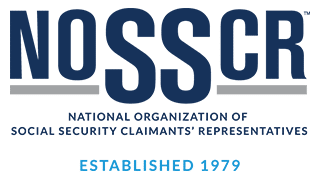Why Choose Our Social Security Appeals Attorneys?
Since 1999, our firm has helped clients navigate the Social Security disability system with confidence. We understand how significant these benefits are, and we draw on our long-standing experience to guide each case with care and precision.
Prepared to Win at the Earliest Level
The Social Security appeals process can be lengthy and complex when not handled properly. Our attorneys understand how each level of appeal works in New York and prepare cases with the goal of resolving claims as early as possible.
Personal Attention From Start to Finish
Our law firm is large enough to handle complex appeals, but small enough to truly know our clients. The attorney you meet during your free consultation stays with you throughout your case, ensuring consistency, trust, and clear communication at every step.
Comprehensive Support for Work-Related Injury Claims
If your disability stems from a work accident, we can do more than pursue Social Security benefits. When appropriate, our team can also assist with a work injury lawsuit to help secure the full financial support you and your family may need.
We Have a No-Fee Guarantee
You never pay us upfront. We only get paid if we win for you, so our success is directly tied to yours.
Free Case Evaluation
Speak with a lawyer at no cost. We’ll review your situation, explain your options, and help you understand the best path forward.
You’re More than a Case
We treat every client like family, taking the time to understand your story and guide you through every step with care and compassion.
Why Was My Social Security Disability Claim Denied?
Each year, the Social Security Administration receives more than 2.5 million disability applications. Because the system is strict and highly technical, many valid claims are denied at the initial stage. Small mistakes, missing documentation, or misunderstandings about eligibility can all lead to an unfavorable decision.
Common Reasons Initial SSDI and SSI Claims Are Denied
A denial does not always mean you are ineligible for benefits. In many cases, claims are rejected because the SSA believes the medical or work-related requirements were not clearly proven. Claims may be denied, or benefits may be stopped if the SSA determines that:
- You waited too long to apply for benefits
- You made a full or partial recovery
- Your condition was considered less severe than reported
- Your injury or illness was diagnosed inaccurately
- The SSA believes the expected recovery period has passed
- You are capable of working, even if you are not fully recovered
These determinations are often based on incomplete medical records or an overly narrow review of your limitations.
What a Denial Really Means for Your Case
Because every disability claim is evaluated individually, a denial often signals the need for stronger evidence rather than the end of your case. Social Security appeals attorneys understand how the SSA evaluates claims and what documentation is needed to challenge an unfavorable decision. We can help gather proper medical evidence, meet strict appeal deadlines, and present your case clearly and effectively at the next stage of the Social Security disability application process in New York.
Appealing a Social Security Administration Decision
Receiving a denial for Social Security Disability (SSD) or Supplemental Security Income (SSI) benefits can be overwhelming, but it is not the end of your claim. Both programs have different eligibility requirements and provide different types of benefits you can receive, including monthly income and, in some cases, retroactive payments. The application and appeals processes share the same steps, so acting promptly and understanding what happens next is critical to protecting your rights and maximizing your chances of approval in New York.
Understanding Your Right to Appeal
If your initial claim is denied, you have the legal right to appeal. In New York, strict deadlines apply at every stage, so it is important to know your options and act quickly. An appeal allows you to submit new evidence, clarify existing documentation, and have your case reviewed by officials who were not involved in the initial decision.
Steps of the Appeals Process in New York
The Social Security disability process after a denial involves several stages. You must follow each step carefully, or you risk losing your right to continue your claim.
- Request Reconsideration
After receiving an initial denial, you can request reconsideration within 60 days of the notice. A different SSA representative who has not seen your file will review all evidence, including any new medical or vocational documentation. In New York, the reconsideration step is generally required unless your claim qualifies for expedited processing under specific SSA programs.
- Request a Hearing Before an Administrative Law Judge (ALJ)
If reconsideration is denied, you can request a hearing with an ALJ. ALJ hearings typically take place at SSA offices in Buffalo, Rochester, or other locations across New York. The judge reviews your case, considers new evidence, and may question you, witnesses, and medical or vocational experts. This stage is critical because presenting detailed, organized medical evidence and expert testimony significantly increases your chance of approval.
- Request Review by the Appeals Council
If the ALJ denies your claim, you may request a review by the Appeals Council within 60 days of the ALJ’s decision. The Council can:
- Remand your case back to an ALJ for further review
- Review and make a new decision themselves
- Deny your request entirely
The Appeals Council provides a second level of review, ensuring that procedural errors or overlooked evidence at the ALJ level can be addressed.
- File a Federal Court Lawsuit
If the Appeals Council denies your claim, you may petition for judicial review in the U.S. District Court for the Western District of New York. This is the final stage of the process and is generally more formal and costly. The court reviews the administrative record and can remand the case or issue a decision.
Each of these stages has strict filing deadlines, usually 60 days from the date of the notice. Missing a deadline can result in losing your right to continue your claim.
Key Considerations at Every Stage
Successfully appealing a denial requires careful preparation. At every step:
- Gather complete medical records documenting your condition, treatment history, and functional limitations.
- Submit all relevant supporting documentation on time, including reports from treating physicians, hospitals, or vocational experts.
- Respond promptly to SSA requests for additional information or evaluations.
- Understand that different stages allow different types of evidence, so planning carefully ensures nothing is missed.
Careful attention to these considerations improves your chances of a favorable outcome and can help avoid unnecessary delays or errors in the process.
Timing and Next Steps
After a denial, it is important to act quickly:
- You have 60 days from each decision notice to file your next appeal stage.
- Some claims may qualify for expedited processing through the SSA’s Compassionate Allowance or Quick Disability Determination programs.
- Submitting evidence promptly and following all procedural requirements is critical to keeping your appeal on track.
Being proactive, organized, and thorough at each stage is essential to securing Social Security benefits in New York. A Social Security attorney can guide you through every step, from reconsideration to federal court appeals, ensuring your claim has the strongest possible chance of approval.
How a Social Security Appeals Attorney Can Help
Having a lawyer file your initial claim can help you avoid mistakes and might result in you receiving your award more quickly. If your application process moves into the hearing stage, an attorney can help you by:
- Gathering medical evidence to support the severity of your condition
- Protecting your right to a fair hearing
- Obtaining a report from your doctor according to Social Security regulations
- Assessing and responding to written questions from the ALJ concerning an additional medical opinion
- Sending you to a vocational expert to determine your ability to work
- Obtaining documents from your file and reviewing actions taken by the SSA
- Cross-examining witnesses at your hearing
- Ensuring the SSA calculates your benefits correctly
- Requesting hearing reviews for each step of the appeals process
A New York Social Security disability lawyer at Hiller Comerford Injury & Disability Law can be of great benefit to you during this critical time.
Frequently Asked Questions
Social Security appeals can be complex and confusing. Below, our New York attorneys answer common questions and address key concerns to help you understand your rights, deadlines, and the appeals process.
Can I reopen a previously denied Social Security claim after several years?
Yes, in some cases, a previously denied claim can be reopened if new medical evidence or a significant change in your condition has occurred. Social Security has strict deadlines for appeals, but legal counsel can advise whether reopening your case is possible and guide you through the proper procedures.
What evidence is most persuasive in a Social Security appeal?
Medical records, specialist reports, and vocational assessments often carry the most weight. Consistency in documentation, clear explanations of functional limitations, and objective test results strengthen your appeal. An experienced attorney ensures all relevant evidence is collected, organized, and presented in the strongest possible way.
How many times can I appeal a Social Security denial?
In New York, you can appeal a denial at four main levels: reconsideration, an Administrative Law Judge (ALJ) hearing, Appeals Council review, and finally federal district court. There’s no strict limit on the number of appeals, but each stage must be requested within SSA deadlines, generally 60 days from the date of the denial notice. Most cases are resolved within the first two stages.
How much does it cost to hire a Social Security disability lawyer?
At Hiller Comerford Injury & Disability Law, we handle Social Security disability cases on a contingency basis. We will discuss all fee arrangements with you during your free consultation so you understand exactly how our services work before moving forward. This ensures that legal help is accessible and transparent for every applicant.
Is it better to appeal a denial or reapply for benefits?
The best approach depends on your circumstances. Appealing is generally recommended if your medical condition has not changed and your denial was due to missing evidence, incomplete documentation, or procedural errors. Reapplying may be a better option if your condition has worsened or new medical evidence now clearly meets SSA disability standards. In New York, appeals usually preserve the original filing date, which can affect retroactive benefits, while a new application starts a fresh timeline.
What if my claim is denied again after all appeals?
If all appeals are denied, you may consider reapplying with updated or additional medical evidence. Each new application is treated as a separate claim under SSA rules, and you must meet all eligibility criteria for SSDI or SSI. In certain cases, applicants may also qualify for special programs or exceptions based on severe, terminal, or rapidly progressing conditions.
Can I receive retroactive benefits if my appeal is successful?
Yes. In New York, you may be eligible for back benefits dating from the original date of disability as long as you applied within SSA time limits. The amount depends on when your claim was filed and when benefits are approved.










